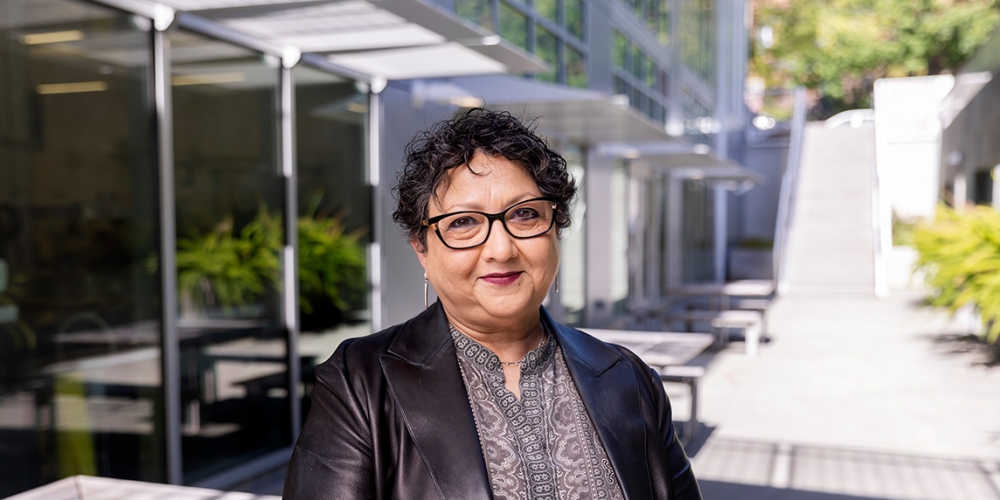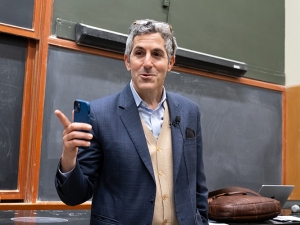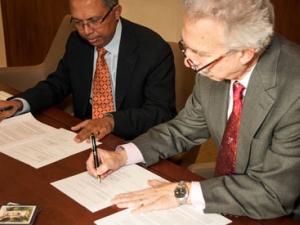

Research Bio
Raka Ray is a sociologist with interests in gender and feminist theory, postcolonial sociology and the emerging middle classes. Her site of research is India. Her interest in gender is fundamental to her work as a scholar, even as how she studies gender has continually evolved. Here’s a brief description of her areas of work:
Social Movements: Her first book, Fields of Protest, argued that the differences in the women’s movements of two Indian cities (Kolkata and Mumbai) could be attributed to the shape of their political fields; that the success or failure of politically affiliated and autonomous women’s groups depended on the political fields within which they were located. Social Movements in India (co-edited with Mary Katzenstein) shows the differences between social movements formed in the crucible of Nehruvian and post-Nehruvian India.
Reproduction of Inequality: In Cultures of Servitude (co-authored with Seemin Qayum), she examined how class and gendered inequality gets produced and reproduced on a daily basis within the private world of the household. A co-edited book with Amita Baviskar, Elite and Everyman: The Cultural Politics of the Indian Middle Classes questions the expected link between the growth of the middle classes and democracy in the Indian context, suggesting that the cultural dominance of the middle class has effectively undermined and even subverted the democratic possibilities inherent in Indian politics.
Postcolonial Sociology: Several essays explore the possibilities of a Postcolonial Sociology, both in terms of the substance of Postcolonial theory – a consideration of the constitutive effects of colonial rule on colonizer and colonized ‐‐and in terms of the challenges to the epistemological foundations of the field of Sociology. A special issue of Political Power and Social Theory (co-edited with Ann Orloff and Evren Savci) highlights how the absence of postcolonial reflexivity might lead to perverse gender politics.
Masculinity: Her current project investigates the politics of masculinity in the absence of work, given the power of the idea of the breadwinner to men's sense of self.
Pedagogy: Handbook of Gender showcases classic and contemporary approaches to the study of gender in India in fields ranging from law to politics and from sexuality to religion. The Social Life of Gender (Sage 2018), co-written with former students (Particularly Jennifer Carlson and Abigail Andrews), is a new, global approach to teaching the Sociology of Gender in the US.
Research Expertise and Interest
feminist theory, gender, masculinity, middle-class, social movements, South and Southeast Asian studies, relations between dominant subaltern groups in India, women¹s movements in India
In the News
UC Berkeley Invests in Six New Tenure-Track AAPI Specialists
Economy, Sexism and Conspiracies Fueled Trump’s Reelection
Sociologists Are the Detectives of the Social World
New Palestinian and Arab Studies Program Established at UC Berkeley
UC Berkeley Launches AI Training Program To Address Criminal Justice System Inequalities With Support From $3M NSF Grant
UC Berkeley first university to house a center for Bangladesh studies
The first university-housed center for Bangladesh studies officially opens at UC Berkeley on March 30 with Chancellor Nicholas Dirks presiding over an invitation-only ribbon-cutting ceremony followed by a talk by Sir Fazle Abed, founder and CEO of BRAC, one of the world’s largest NGOs.
Bangladesh takes center stage with Subir and Malini Chowdhury Center
Bangladesh may be known mostly for its poverty, environmental vulnerability and deadly factory fires, but the new Subir and Malini Chowdhury Center for Bangladesh Studies at the University of California, Berkeley, is ready to prove that this South Asian country of over 160 million people has a lot more to teach the rest of the world.







